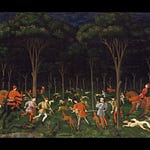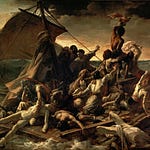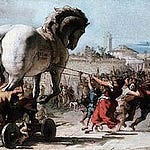Today I am joined by Matt Peterson, the founder of Claremont’s American Mind journal, he’s worked with New Founding, and he is the Editor in Chief at Blaze Media. In my opinion, and I’m not saying this to flatter him because he is here, but I think that Matt has done more to work to help conservatives understand what time it is than almost anyone else. I got online just around when TAM launched and it really helped me develop my thoughts while I was in the midst of a political re-orientation.
The occasion was to discuss five essays by Angelo Codevilla that really lay out the American political landscape from 2010 to 2021. Codevilla is one of the most perceptive observers of American political life that I know of. Here are the essays that we discussed (plus one bonus essay that Matt brought up):
2010: “America’s Ruling Class”
2016: “After the Republic”
2017: “The Cold Civil War”
2018: “Our Revolution’s Logic”
2020: “Revolution 2020”
2021: “To Rescue a Nation”
The conversation was a blast!
I’m thinking it might be nice to have a discussion group or rolling set of recorded conversations with a friend or two on these and other works by Codevilla…
Previous Classical Conversations:
Ancient Gardener on the difference between classical education in the classical age and classical education in our time.
Arthur Powell on his poetry chapbook Skirmishes in the Atrium, the poet’s relationship to technology, and timeless / timely poetry.
Kruptos on building a parallel polity, the enframing of thinking by technology, and the loss of virtue.
Nobody on the core differences between ancient and modern poets, poetry vs. philosophy, and possibilities for the contemporary poet.
Lance Legion on contemporary military officer education, Romans vs. Greeks, Agamemnon, Julius Caesar, and the relation between Christianity / Vitalism.
Jeremy Carl on Hungary, right wing environmentalism, immigration, and Christian nationalism.
Space Age Maximalist on engineers as aristocrats of the future, technological optimism, and how to merge scientific and humanistic thinking.
William Wheelwright on agriculture preceding culture, a vision for a new school, and Homer’s Iliad.
Phocaean Dionsyius on Aristocratical Christianity (our second conversation on this)
David Azerrad on the American founding, a diagnostic account of the contemporary situation, and thoughts about how to move forward.












